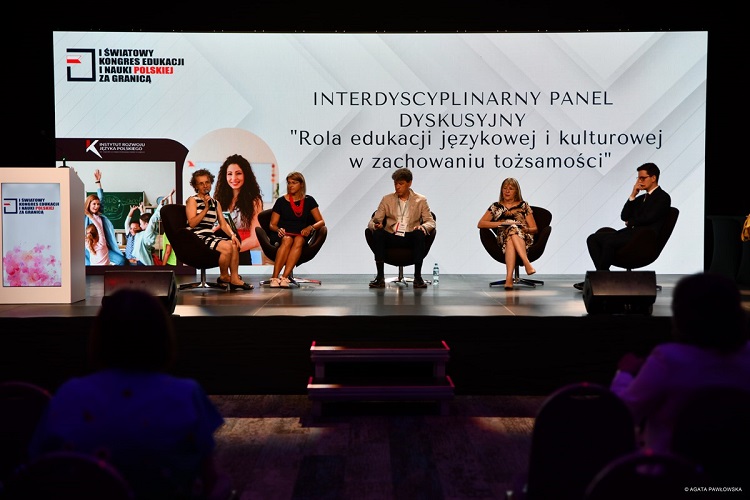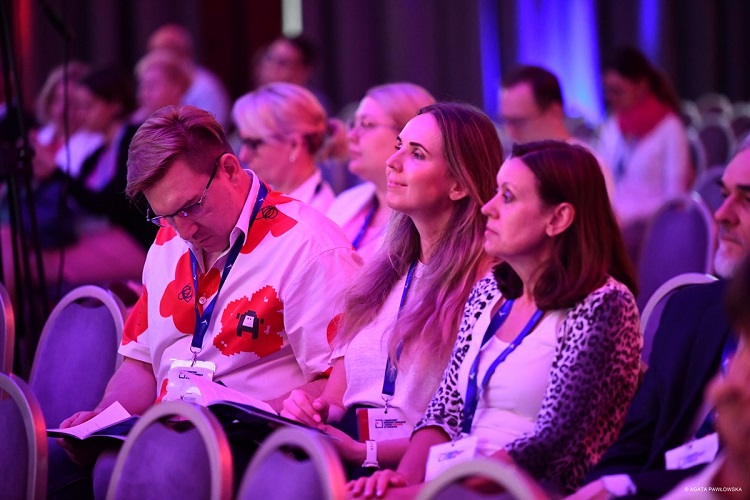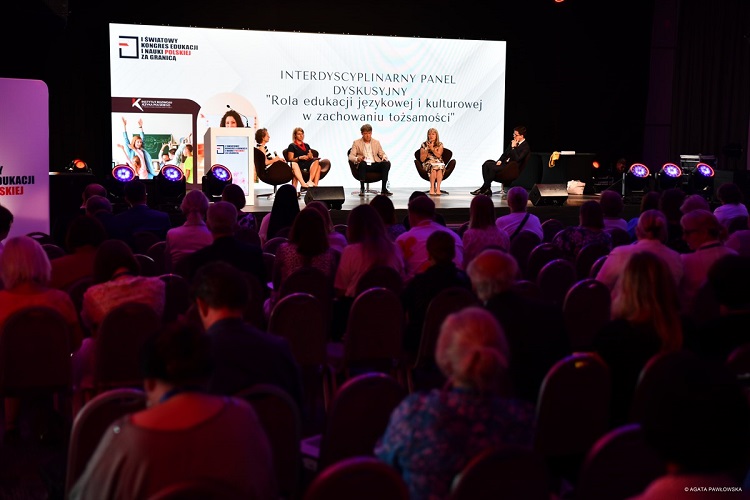The Polish language should be taught using examples from good literature, according to researchers and practitioners of Polish language education abroad who participated in the 1st World Congress of Polish Education and Science Abroad in Jachranka.




Participants of the panel discussion on the “Role of Language and Cultural Education in Preserving Identity” pondered over what the term “good literature” means for those learning the Polish language and whether it can be understood in the same way regardless of the cultural context and time.
Prof. Jolanta Tambor, Director of the School of Polish Language and Culture at the University of Silesia, emphasized that literature should not be divided into “good and bad,” but rather chosen appropriately for a specific cultural circle.
“There are many people in this room who teach children and young people, and we know very well that we cannot reach them with the same literature that we read and considered very good. Moreover, the problem lies in reaching them with literature provided on paper,”
said the expert.
Prof. Tambor pointed out that we are currently in a “very peculiar moment” where cultural differences are strongly overlaid by generational differences.
“The generation born after 2000 was born ‘with a cell phone in hand’ and the internet surrounding them. They need a different approach to the world,” stated Prof. Tambor. She added that, on the other hand, children and adults abroad eagerly engage with literature that we tend to overlook in our country, namely the positivist literature. “We have biases against ‘Janko Muzykant,’ ‘Antek,’ ‘Kamizelka,’ but children and adults around the world enjoy reading works that have a distinct plot, a clear guiding motif, and a certain moral. And they are written in beautiful Polish language,” explained Prof. Tambor.
Łukasz Jarocki from the Institute of Books emphasized that Polish literature editions featuring illustrations by outstanding Polish illustrators such as Józef Wilkoń, Iwona Chmielewska, Elżbieta Wasiuczyńska, and Jan Marcin Szancer are helpful in reaching readers outside of Poland. He referred to these publications as “Polish export goods.”
Prof. Wojciech Kruszewski from the Department of Textology and Publishing at the Catholic University of Lublin emphasized that Polish literature for readers around the world is attractive, and the selection of texts for classes should be left to the “wisdom and experience” of teachers.
“However, I would like Polish literature to be more present in Polish language textbooks, making them less ‘practical’ because such textbooks quickly become outdated. Good literature does not age,” he said.
Prof. Joanna Getka, Head of the Department of Central and Eastern European Intercultural Studies at the University of Warsaw, referred to research indicating that over half of Poles do not read any books in a year, and a similar situation exists abroad. In her opinion, good literature is one that leaves a lasting impression on the reader.
“It is our task to translate our good literature into foreign languages. Good translations can attract people to our language. We need to rid ourselves of the notion that Polish literature must always be in Polish. Our contemporary authors exemplify this, for example, Sapkowski is currently more popular than Tolkien,” said Prof. Getka.
The popularity of texts is also influenced by the fact that they have been adapted into movies or computer games. Prof. Getka cited the increased popularity of Henryk Sienkiewicz’s prose in Ukraine after the adaptation of “With Fire and Sword.”
“Let us monitor and leverage these trends, but let us not impose our notions of what might interest foreign audiences. Let us not impose our ideas, as this can cross the fine line between promotion and cultural violence,” emphasized Prof. Getka.
Prof. Jolanta Tambor appealed for the consolidation of efforts to promote the Polish language abroad, as currently undertaken by many institutions, to avoid fragmentation. Prof. Wojciech Kruszewski mentioned the Spanish Cervantes Institute as an exemplary institution in a similar field, describing its organization as “exemplary.”
According to Prof. Tambor, new professions should be established, such as Polish language lecturers and teachers of Polish as a foreign language abroad, as well as language and cultural assistants in schools in Poland, considering the number of children from Ukraine and Belarus studying there.
“I have encountered such individuals in schools in Canada, and it worked wonderfully. It is incredibly important to integrate these children as quickly as possible, without assimilating them with our own children,” she emphasized.
In summary, Prof. Tambor expressed her desire to never again hear what a resident of Curitiba, Brazil, of Polish origin said to her: “People here were ashamed to be Polish. Some were ashamed because Italy would make fun of them.”
“I would like all individuals of Polish origin to be proud and not consider themselves representatives of a peripheral language and culture. Let us accept the regional and territorial distinctiveness of the Polish language, along with its historical heritage, as acceptable within the Polish language. Instead of saying that these people speak Polish worse, let us praise their ability to communicate using such wonderful Polish language,” highlighted Prof. Tambor.
Following the panel discussion, members of the audience also had the opportunity to voice their opinions. Marianna Łacek, President of the Association of Polish Teachers in Australia, stressed that Polish literature examples for children learning the language abroad should be simple enough to avoid discouraging them from learning.
“We need to shift from external motivation, which works for younger children, to internal motivation. We can achieve this through well-selected, interesting literature,” said President Łacek.
Joanna Fabisiak, a Member of the Polish Parliament, observed that, in her opinion, literature is servilely harnessed to language learning and expressed her wish for a Polish language textbook that explains grammatical issues based on literary works.
“Children who do not speak literary Polish start feeling ashamed of it. Therefore, we need to develop a program for teaching Polish as a foreign language. The current program is anachronistic,” concluded MP Fabisiak.
Andrzej Cierkosz, President of the Dobra Polska Szkoła Foundation in New York, stated that bilingual programs are a successful solution.
“In the USA, children want to learn the Polish language as it is a key to better education for them. Bilingual programs are the best educational offer for children in the USA. Everyone knows that children educated in two languages gain access to the best universities,” emphasized Cierkosz.
The program of the 1st World Congress of Polish Education and Science Abroad consists of both substantive-training and cultural-educational parts. It includes panel discussions, popular science lectures, didactic workshops, and methodological training. Numerous meetings with scientists, educators, and experts working for the development of Polish education abroad and the promotion of Polish education and culture worldwide are scheduled.
The aim of the congress is to integrate the Polish diaspora and Polish communities abroad, as well as to facilitate the exchange of experiences among teachers and researchers working outside of Poland. The event brought together over 500 participants from over 40 countries in North and South America, Europe, and Asia, including teachers, parents, lecturers, professors, researchers, representatives of Polish organizations, Polish clergy, media, and children.
